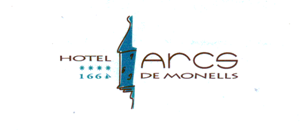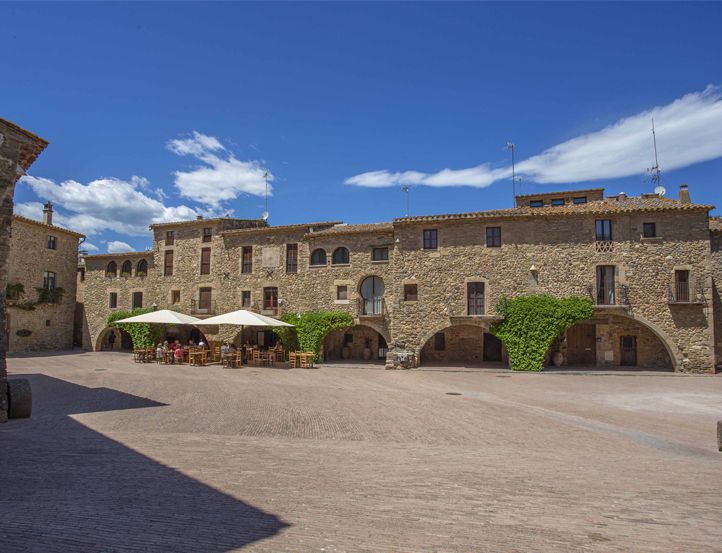Monells
Although a Roman past is possible, supported by the fact of being on the route of the path of Empúries, the first written references to Monells date from the late ninth century, (889-890).The Latin etymological origin of Monells, it seems it would mean "small mills".
The church of Sant Genís dates from 1019, 11th century. The current nave and apse date from the 14th century and the façade is Baroque.
In the second half of the 11th century, the castle was built on a hill on the right bank of the Rissec.
The lord of Monells, Ramon Otger, in agreement with the Count of Barcelona Ramon Berenguer III, moved in 1102 the weekly market of Anyells, prior to the 11th century, to Monells, next to the castle. It is the current arcaded square. The measures of Monells were used in many cultivated Girona. The market, very dynamic in the twelfth and thirteenth centuries, lost importance in favor of La Bisbal (granted by James II in 1322), decline marked by disputes between the Count of Barcelona and the Count of Empúries, lords of Monells.
From the market we have the current arcaded square, from the sixteenth to eighteenth centuries.
In 1247, Simó de Palau, viscount of Bas and lord of Monells, died, inheriting the castle and the village his daughter Sibil-la, countess of Empúries, and from that moment on Monells belonged to the County of Empúries.
The Villa was walled, independently of the castle. Of the castle there are the remains of a wall lock, and the base of a tower.
The legend of the golden goat
During the various conflicts between the counties of Barcelona and Empúries, it is said that once the lord of Monells, seeing the besieged village from the battlements of the castle, ordered the castle blacksmith to shoe the horses to leave and ordered him to put the horseshoes on upside down.
Then he had the gold, rings, necklaces, diamonds, earrings, and other jewelry gathered, and gave him a commission to melt it all down and make a golden goat.
By midnight, the goat was made, and he ordered it left in the main hall of the castle and said, "You will take the lands and the town from me, but you will not get an ounce of gold." And with the darkness he fled.
The enemies did not guess which direction he had taken because each track of the horse seemed to bring them closer and closer to the castle. The castle collapsed and he kept under the rubble the golden goat.

